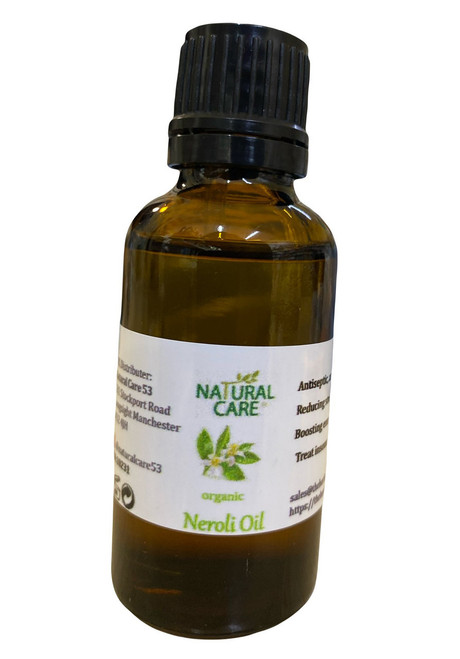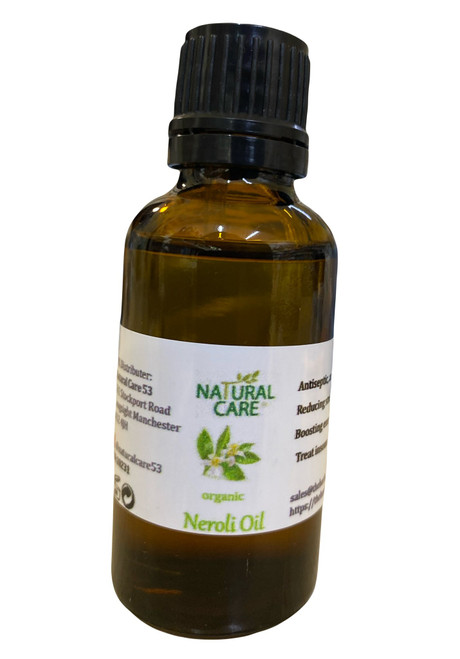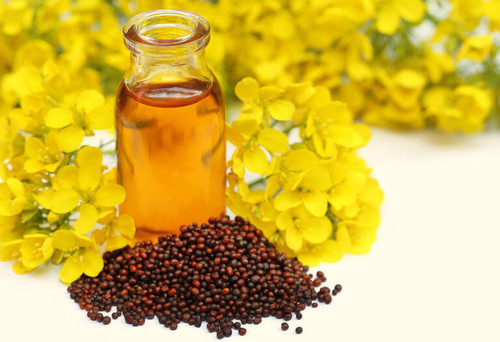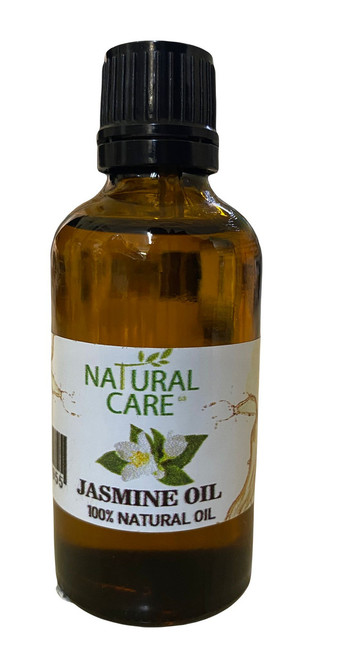Neroli oil is an essential oil, extracted from the flowers of bitter orange trees (Citrus aurantium var. amara). It’s also known as orange blossom oil. The oil is extracted from the flowers by steam distillation.
Neroli oil emits a rich, floral scent, with citrusy overtones. It’s used as a base note in perfumes and scented products. Because of its soothing effect on mood, neroli oil is often used as an ingredient in body lotions and cosmetics. It can also be used in aromatherapy.
Some evidence suggests that neroli oil has benefits for conditions like:
- depression
- anxiety
- high blood pressure
- seizures
- menopausal symptoms.
Neroli oil has not been studied extensively, although some evidence shows that it can be beneficial for several conditions. These include:
Neroli oil for skin
Several small studies, including one reported in the Pakistan Journal of Biological SciencesTrusted Source indicate that neroli oil has antimicrobial, antifungal, and antioxidant properties. This may make it helpful for reducing acne breakouts and skin irritation.
Neroli oil for seizures
An animal studyTrusted Source found that neroli oil has biologically active components which might make it beneficial for reducing seizures and convulsions. These components are:
- linalool
- linalyl acetate
- nerolidol
- (E,E)-farnesol
- α-terpineol
- limonene
Neroli oil for menopausal symptoms
A small study of postmenopausal womenTrusted Source found that inhaled neroli oil was beneficial for relieving several symptoms associated with menopause, such as high blood pressure, low libido, and elevated stress.
Neroli oil for high blood pressure and pulse rate
Inhaling neroli oil may help lower blood pressure by reducing cortisol, a stress hormone. Its limonene content may also have a positive effect on the autonomic nervous system, which controls breathing and heartbeat. However, no studies currently exist that examine this effect.
Neroli oil for labor
A study on women in first-stage laborTrusted Source found that inhaling neroli oil reduced feelings of anxiety and the experience of pain during the first stage of contractions. The women were given gauze pads soaked in neroli oil attached to their collars to wear during labor. The gauze pads were refreshed every 30 minutes.
Neroli oil for premenstrual syndrome
Neroli oil has shownTrusted Source to decrease several symptoms of PMS (premenstrual syndrome) in a small study on menstruating college students. These symptoms included poor mood, pain, and bloating.
Neroli oil for inflammation
Neroli oil’s anti-inflammatory properties may make it beneficial for topical and internal use. As a skin treatment, it may reduce inflammation and irritation. It may also have a positive impact on inflammatory responses within organs.
An article in the Journal of Agricultural and Food ChemistryTrusted Source reported that neroli oil may have significant potential benefits as a treatment for inflammatory-associated diseases, when manufactured as a food product.
Neroli oil for stress and anxiety
Inhalation aromatherapy using neroli oil may help reduce stress, anxiety, and anxiety-induced depression. When inhaled, neroli oil may help the brain release serotonin, and reduce levels of cortisol, a stress hormone.
Neroli oil is typically used in aromatherapy, and by applying it directly to the skin. You can use it by itself, or combine it with other essential oils in a diffuser, or spritzer. You can also pour a small amount of oil into your bath, or into a facial steamer to inhale.
If you wish to enjoy neroli oil throughout the night, try soaking a cotton ball and placing it under your pillow. You can also scent a handkerchief with neroli oil and use it in five-minute increments on-the-go.
Some evidenceTrusted Source shows that aromatherapy, when mixed with massage, can have a more positive effect on mood than aromatherapy alone. To try out this technique, mix neroli oil with a carrier oil and use it topically as a skin treatment, or during massage.
You can also use neroli oil topically to treat acne breakouts or inflamed skin. Try applying it directly to pimples or irritated skin on a cotton pad. Leave on overnight.
Essential oils should be diluted before applying to the skin. The usual dilution is 2 to 6 drops of essential oil in an ounce of carrier oil such as olive oil.
Essential oils also have an effect when inhaled through aromatherapy. Be aware of pets and others in the area who might not benefit from inhaling the essential oil.
When used according to directions, neroli oil is considered safe. As with all essential oils, ingestion is considered dangerous.
You should also try a patch test on your skin, prior to using. If you have a citrus allergy, do not use neroli oil.
Like other citrus essential oils, you must avoid sun exposure when using, the skin reaction can be severe:
- Do not use this oil if you cannot avoid exposure to the sun.
- Do not use this oil if you’re using a tanning booth.








